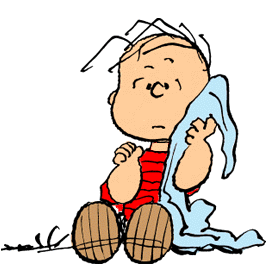With "Tristessa", it was fleeting junkylove, more of a meditation of what it means to be enslaved and reliant upon others and upon drugs than truelove, like "The Subterraneans". Kerouac's follow-up to "On the Road" is even more off-the-cuff, but now a panoramic snapshot of a single love, not several back-and-forth trips, and in a mere 111 pages he spills that love onto the paper in all its details and glory, true to the soul and all that good stuff.
For a short little novel "The Subterraneans" is incredibly dense, wordy, and still flowing. It took me several sessions to come through, probably as many as the 2-3 times as long "Big Sur". You could tell that Kerouac wrote this in a BLAST, three days and three nights in reality, and that it struck like lightning you take a picture of and never fades. The words would lose me, find me, and like great Kerouac, there are moments you have no clue what's going on, then moments of utter clarity. He's able to divulge common things such as the basic plot (meeting, courtship, first sex, the good times, the bad times, the cause of the end, the end, the outcome) with glory of humanity and tenderness with his sketching prose, his stream-of-consciousness paralleled by no one.
The girl's name is Mardou, half-black half-Indian who strikes Kerouac's fancy as being somewhat the mother of us all. Hie Oedipal Complex is fleshed-out toward the end, and continuously through the whole Duluoz Legend as he struggles to find a replacement for his mother and always ends up back on her doorstep. Mardou seems like the closest thing the many-times-a-married man would find, as they make plans in darkness and love for real, but it isn't to last. The classic Kerouac paranoia rears its head as he begins to see signs of their downfall and plans accordingly. Through the man's positivity as The Legend goes on, his worship of life and the wonderment it brings, he's surely got the weakness of looking over his shoulder constantly. In this way he sabotages the relationship and this is a reflection of its destruction, beautiful and brittle, and totally relatable as it is a cliche in a new way. So not a cliche. Just a really good book on love.
Also covered in subplots that will converge with Mardou's affair with another "subterranean", Kerouac must've cemented his status as leader of the beats with this book which goes into further detail of the structure of the underground folk he was a part of. Some had made it in art, some were simply self-made scholars, others street poets and beatniks with the brains to join; they all had brains. Mardou was like Kerouac, impoverished, mad, intelligent as hell, and ready for whatever. In many ways she was the counterpart he was made for as you could see his contrast with the better-off beats and their witticisms that he did not all together fit with (he was too honest, even in his wit it was not as clever as it was genuine). Kerouac was instead crazier, just as brainy, impressive in conversation and art, but always retreated, and so did Mardou, to her home and the aptly named Heavenly Lane she lived on, where, Kerouac prophesized, one day her light would not be on for him any longer. And he was right.
Through the packed prose and intellectual and cultural references Kerouac and his Legend are known for, this strikes compelling as what is a meditation on love and its costs and rewards. He seems to regret in retrospect what he did to destroy, only seeming to understand it away from the situation and behind a typewriter, but still he moves. That's the point, right? He moves, and we move, and his travels and loves and heart-breaks and search for it continue perpetually. And I can't help but feeling he finds IT so often, but also finds that nothing so IT lasts, too precious and breakable. Just move!
"...and now you threw away a little woman's love because you wanted another drink with a rowdy fiend from the other side of your insanity."
